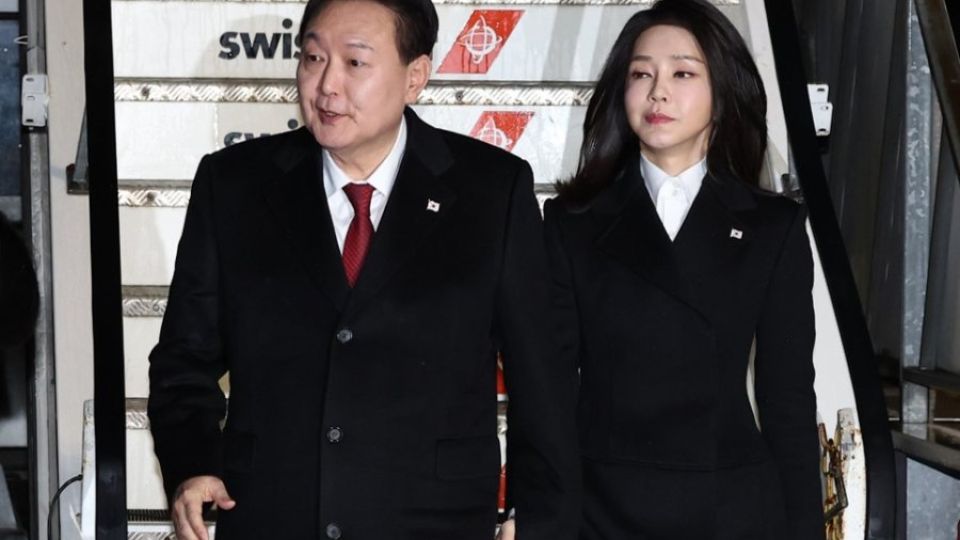January 19, 2023
ZURICH, Switzerland – President Yoon Suk Yeol is set to debut at the World Economic Forum’s annual meeting on Thursday in Davos, Switzerland, amid the notable absence of the leaders of the two largest economies, the US and China, against a backdrop of growing nationalism and deglobalization.
While there are simmering questions over the forum’s validity in boosting globalization, experts say Davos is still a “good opportunity” for Asia’s fourth-largest economy to increase its global presence and leadership for free trade and international solidarity.
The Davos Forum, where political leaders, prominent business leaders and scholars from around the world gather to discuss current issues, has set the theme of this year’s event as “Cooperation in a Fragmented World.”
It’s main goal is to stimulate multinational cooperation to tackle imminent and long-term challenges and crises such as protectionism and deglobalization triggered by the US-China trade war, Russia’s invasion of Ukraine, slowing global economic growth, rising energy and food prices and climate change.
Putting a damper on such initiative, six leaders of G-7 nations, including the US and China, have chosen not to attend the forum, sending deputies in their place. Germany’s Olaf Scholz is the only G-7 leader scheduled to attend.
“Globally, nationalism is becoming stronger,” said Bark Tae-ho, president of the Lee & Ko Global Commerce Institute and a former trade minister. “The US, which used to criticize China’s subsidy policy, is moving toward nationalism, such as through ‘Buy America’ policies and the Inflation Reduction Act. The European Union is following the move.”
These developments pose as a concern for Korea, which advocates for and supports rules-based multilateral trade, he said.
“However, even if major leaders are not present, that does not negate the purpose for Korea,” Bark said. “Davos is a venue where a president can introduce the nation’s investment environment to global business leaders and freely exchange opinions on free trade.”
Top CEOs from global companies, such as JP Morgan’s Jamie Dimon, Microsoft’s Satya Nadella, Uber’s Dara Khosrowshahi, Dell Technologies founder Michael Dell and Goldman Sachs chief David Solomon, are on the list of attendees at the forum.
“Davos is paying more attention to South Korea, which ranks as the 10th-largest economy and is the world’s eighth-largest trading nation,” said Heo Yoon, a professor of international trade at Sogang University.
“It is still a good opportunity for Korea to lead the talks in the discussion in the importance of free trade, free investment and open society that international organizations have long pursued,” he said.
The professor said many countries will be able to “more actively discuss” the importance of multilateralism, universal values and the future direction of mankind regardless of the attendance of leading countries, which have generally led the agenda.
Yoon’s press secretary Kim Eun-hye told reporters on Tuesday night in Zurich that President Yoon will emphasize “solidarity and cooperation” at the forum, recognizing international trade has been “fragmented,” the World Trade Organization system has “weakened” and domestic-oriented competition is “intensifying.”
In a special speech at the Davos Forum scheduled for Thursday, Yoon is to present “a path of solidarity” for strengthening supply chains, transitioning to clean energy and realizing a digital order, Kim said.
On Wednesday, the second day of his visit to Switzerland, Yoon is set to have lunch with CEOs from Intel, IBM, Qualcomm, JP Morgan, Samsung, SK, Hyundai Motor and LG to introduce Korea’s investment environment and technological competitiveness and seek ways to cooperate, Yoon’s office said.
This year’s annual economic forum brings together about 600 CEOs of global companies, 19 central bank governors, 56 finance ministers, 35 foreign ministers and 35 trade ministers, as well as 2,700 figures from the political, business and academic worlds.
Kang In-soo, a professor of economics at Sookmyung Women’s University, said in his recently published article that “choosing sides” through arbitrary and discretionary policies may seem like the international trend right now, but that it may inevitably become a “race to the bottom.”
For Korea, emphasizing the need to accumulate social capital on a global level based on “openness” would be crucial, and for that reason, he wrote, it is hoped this year’s Davos forum can create momentum to restore international trust.


